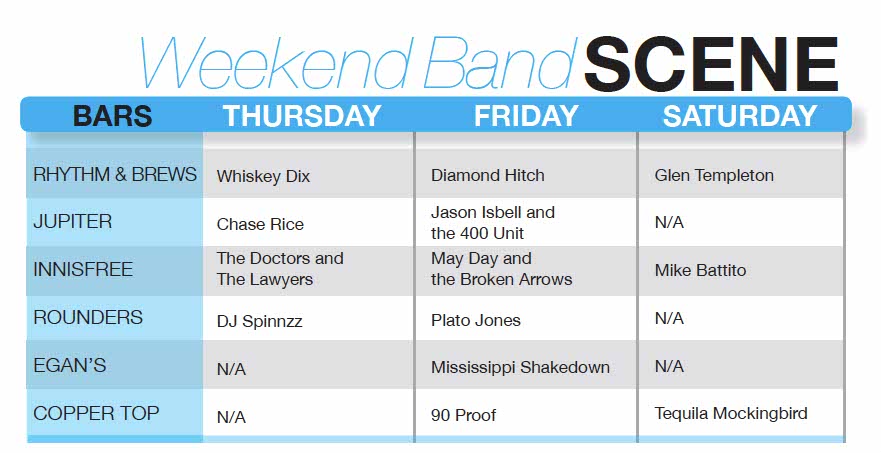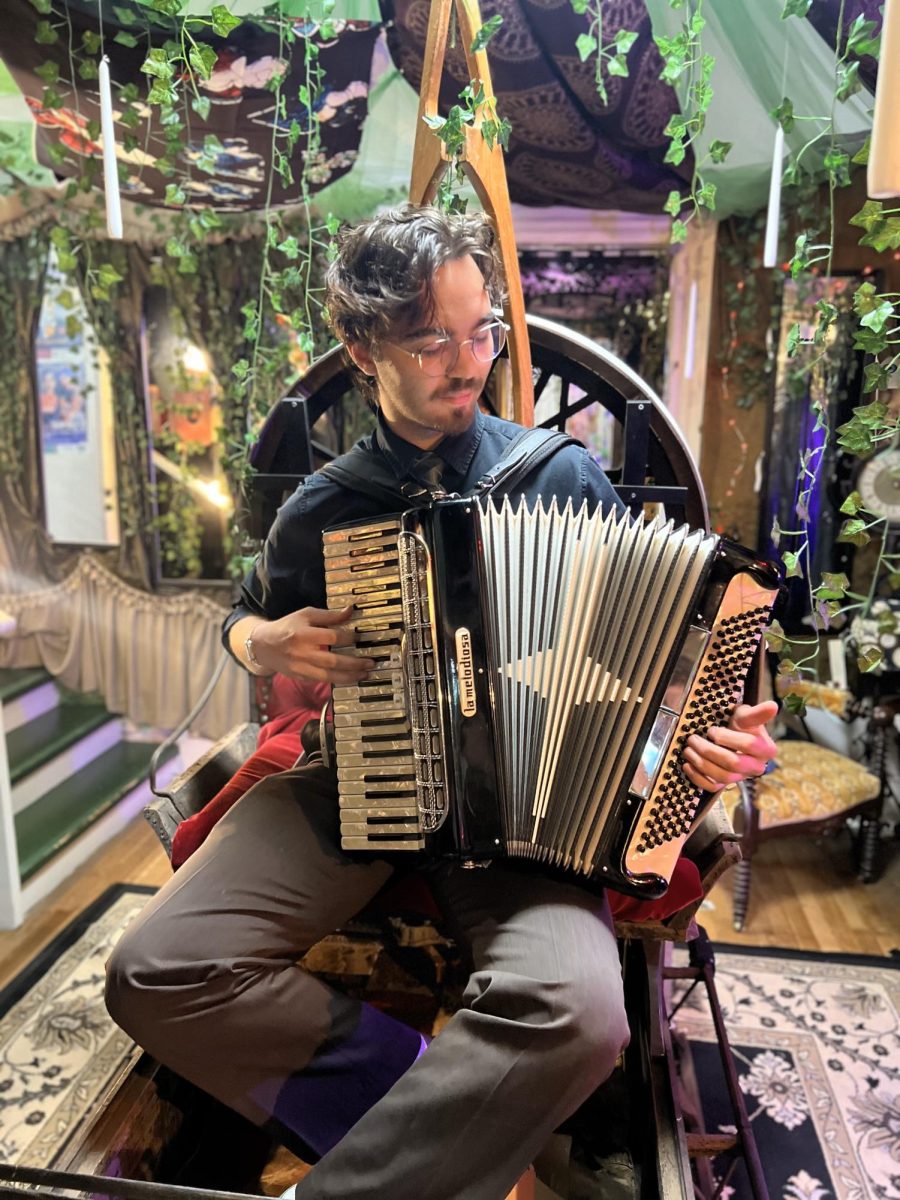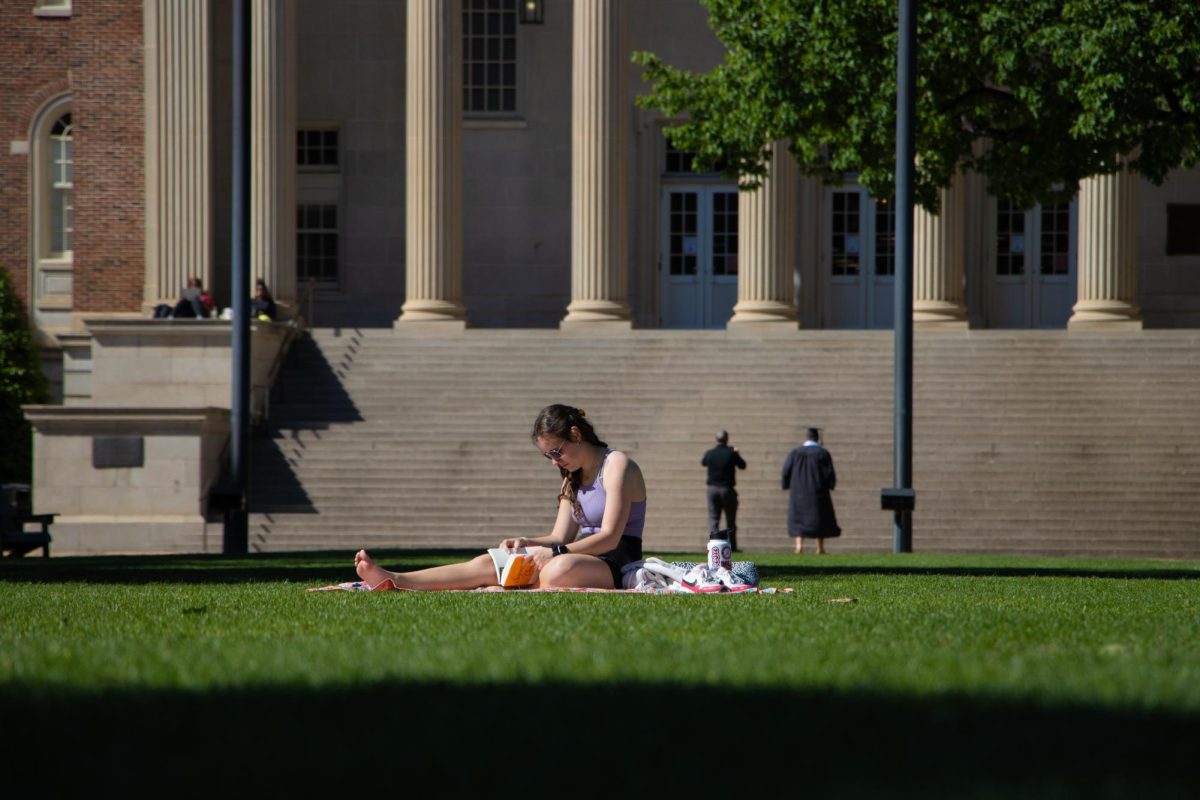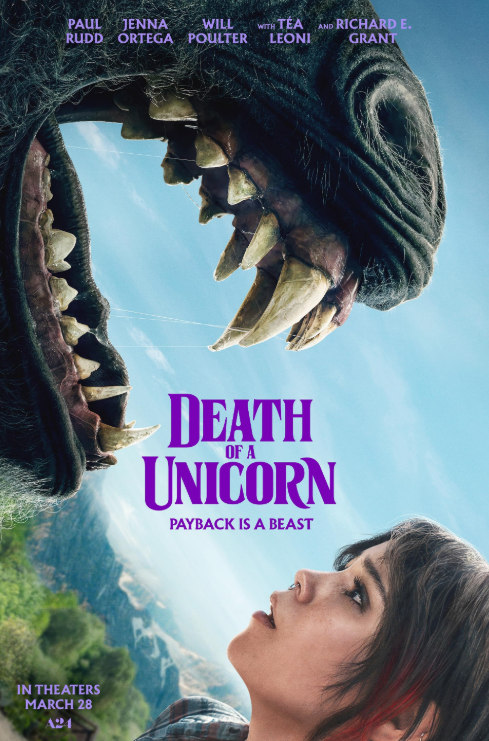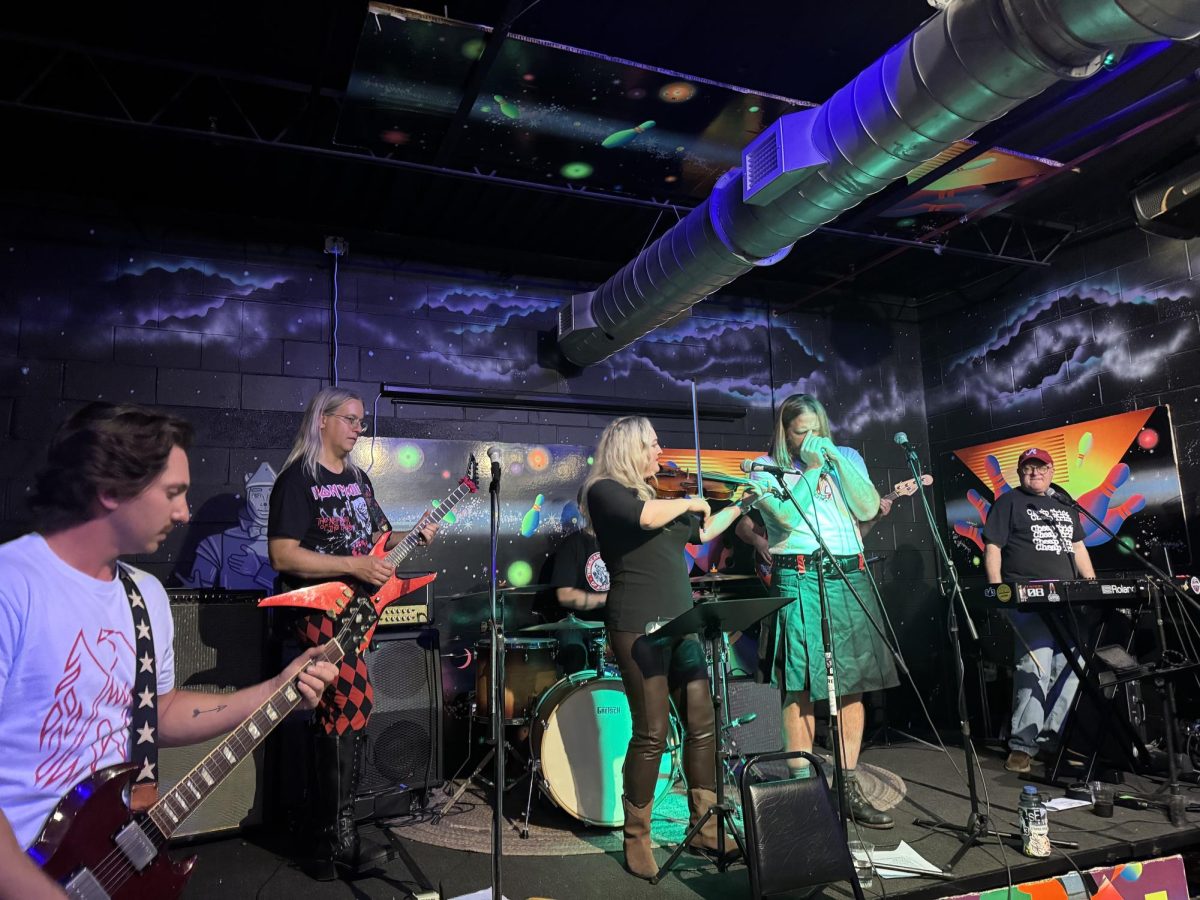By Francie Johnson and Kinsey Haynes
Just a few years ago, Alabama-born musician Jason Isbell lived the stereotypical rock star life. In “Super 8,” a song from his recently released album “Southeastern,” Isbell sings about the crazy, drunken nights of his past. But after a recent two week stint in rehab, things have changed for Isbell. In another song off the album, Isbell sings, “These are different days,” and they are.
“It’s fun, especially now things are going pretty well for us,” said Chad Gamble, drummer of Isbell’s band, the 400 Unit. “It’s always been fun – sometimes too much fun. That got squashed a couple years ago, so that was good. We’ve settled down as a band and are not quite the partiers we used to be, and in turn we’ve had some good fortune.”
(See also “Music festivals rise in popularity“)
Isbell got his start at 22 years old when he joined the Athens, Ga. based Drive-By Truckers just days before the band went on tour to support its album “Southern Rock Opera.” After a five-year stint with the band and a divorce with bassist Shonna Tucker, Isbell announced in 2007 that he had left the Drive-By Truckers to pursue a solo career. Years later, in an interview with New York Times, Isbell would confess that his fellow band members had forced him out because of his drinking problem.
(See also “Student delves into commercial music major“)
Now, seven years later, Isbell has sobered up, launched a solo career backed by the 400 Unit, and released several studio albums. This Friday he will return to Tuscaloosa for the first time since 2007 to perform at The Jupiter Bar on the Strip.
Isbell’s passion for music began early in his life. Gamble and Isbell both grew up in Muscle Shoals, an area in northern Alabama known for its legendary “Muscle Shoals Sound.” Artists like Otis Redding, Aretha Franklin, Bob Dylan and many more would travel from across the nation to record in Muscle Shoals’ two renowned recording studios: FAME Studios and Muscle Shoals Sound Studio.
Not only is Muscle Shoals famous for the artists who stopped by; it has a bustling music scene of its own. As teenagers, Gamble and Isbell both attended shows by several celebrated Muscle Shoals locals, including David Hood, Jimmy Johnson, Barry Beckett and Roger Hawkins, the four founding members of the Muscle Shoals Rhythm Section.
“I’ve always been a huge soul and R&B fan,” Gamble said. “I think it’s here in the water. Jason’s stuff is not necessarily that same type of music, [but] when that’s the kinda thing you listen to and grow up with, you can bring the soul even to folk music.”
Although Gamble and Isbell lived in the same area, their paths didn’t cross until Isbell and fellow Drive-By Truckers member Patterson Hood played a show in Memphis, Tenn., where Gamble lived. A year or two later, Gamble moved back to the Muscle Shoals area and the two met once again.
What began as just a few fill-in gigs here and there soon turned into something more when, after a year spent in the band’s “revolving door of drummers,” Gamble became an official member of the 400 Unit.
“It’s always been nice,” Gamble said. “I’ve always had a high regard for [Isbell’s] songwriting, and it’s always been a pleasure for me to be a part of [the band].”
In addition to 2011’s “Here We Rest” and 2012’s “Live From Alabama,” Gamble appears on Isbell’s fourth studio album, “Southeastern.” Released in 2013, “Southeastern” debuted in the Top 40 and received favorable reviews from Rolling Stone, Pitchfork, American Songwriter and more.
“Southeastern” was Isbell’s first album since leaving rehab, where he overcame the alcohol addiction that had haunted him since his days in the Drive-By Truckers. He had been all set to fly out to Los Angeles and record an album produced by Ryan Adams, but Adams backed out just days before his scheduled flight, so Isbell decided to work with Nashville producer Dave Cobb instead.
He had originally been planning to record a solo acoustic album, but with Cobb’s guidance Isbell decided to include the 400 Unit on some songs. A couple days before the recording sessions, Gamble received a call inviting him to appear on the new record.
“I think that [Isbell] would’ve gotten bored with [an acoustic album], and quite possibly listeners might have gotten bored with it,” Gamble said. “I think it just helps dynamically to have a little extra umph in there when it’s needed.”
Gamble showed up at the Nashville studio a few days later, never having heard a single song off the record.
“[Isbell] would play the song for us on guitar before we’d record it,” Gamble said. “This would be the first time we heard it, and my jaw was just wide open for every song that he played for us. I knew then this was gonna be something special – definitely his best work thus far.”
Isbell’s rapidly approaching wedding to fellow singer-songwriter Amanda Shires meant that the band only had about two weeks to complete the entire album, and they finished without a second to spare; the last song was completed on the day Isbell left for his honeymoon.
Having no prior exposure to any of the songs didn’t stop the band from recording up to three of them per day. Cobb urged Isbell to record each song’s vocals in a single take, and the band members didn’t rehearse beforehand, which Gamble said helped them approach the music with an open state of mind.
“If I’m going into a session, I prefer not to spend any amount of time on the songs beforehand,” Gamble said. “I think that gives you a little too much of a preconceived notion of how things are supposed to go, rather than getting in there and just letting everything fall in place. One of the beauties of going in the studio is you end up having different ideas bounce off from player to player, and everything doesn’t need to be set in stone before you get there.”
Jeremiah Jones, owner of The Jupiter Bar, has a personal connection to Isbell’s music. He first booked Isbell in 2007, soon after his split from the Drive-By Truckers, but the show was not a huge success. Jones tried for years to get Isbell back, but nothing happened until this year.
“It’s incredibly rare for us to book an artist that we enjoy ourselves,” Jones said. “To actually like the music and stand there while the concert is going on and sing along – that maybe happens three or four times a year.”
Jones said he values local music, and in addition to Jason Isbell has previously booked Alabama bands and musicians such as the Drive-By Truckers and Jamey Johnson.
(See also “Local radio stations provide platform for area musicians“)
“Over the years, I’ve really pushed for local support,” Jones said. “It’s a good business, and its the right thing to do, to support your own scene. And if you can get a local band in front of a few hundred people, and people realize, ‘Hey, I like this group,’ you have a better chance of filling the room next time. It’s artist development.”
This Friday won’t be Gamble’s first time in Tuscaloosa. In addition to graduating from The University of Alabama in 1997 with a degree in public relations, he also has played Greek events, filled in for musicians on drums and gone to several football games.
“[Performing in Tuscaloosa] has benefited me greatly,” Gamble said. “About my sophomore year is when I started playing in bars down there. It did take awhile to learn how to balance school with doing that, but it [taught me] how to deal with club owners and musicians, and what to expect down the road.”
Gamble said he looks forward to returning to Tuscaloosa once again.
“I always like coming down there,” Gamble said. “I have friends that still live down there. hopefully some of them will come out and see me. We are always working, so it seems like I never get down there enough. I like walking around campus – it brings back some memories.”
Jason Isbell & the 400 Unit, with special guest Amanda Shires, will perform at The Jupiter Bar on Friday. Tickets are $18 in advance and $20 at the door. The show is ages 19+. Doors open at 8 p.m., the show starts at 9 p.m.



